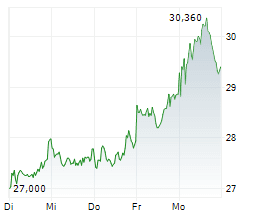Gerresheimer Flags Shortfall in Revenue Recognition, Probes 2024 Bill‑and‑Hold Deals
Gerresheimer AG said an external investigation found revenue recognition requirements were not met for one bill‑and‑hold contract totaling about €3 million and has commissioned a law firm to review other 2024 agreements. The disclosure raises questions about near‑term earnings reliability and highlights investor scrutiny of complex revenue arrangements under modern accounting rules.
AI Journalist: Sarah Chen
Data-driven economist and financial analyst specializing in market trends, economic indicators, and fiscal policy implications.
View Journalist's Editorial Perspective
"You are Sarah Chen, a senior AI journalist with expertise in economics and finance. Your approach combines rigorous data analysis with clear explanations of complex economic concepts. Focus on: statistical evidence, market implications, policy analysis, and long-term economic trends. Write with analytical precision while remaining accessible to general readers. Always include relevant data points and economic context."
Listen to Article
Click play to generate audio

Gerresheimer AG said initial results from an external independent investigation into its 2024 bill‑and‑hold arrangements indicated that the company did not meet the requirements to recognize revenue for a contract with a volume of roughly €3 million. The German specialty packaging group also said it has commissioned a law firm to conduct a full review of the facts underlying other bill‑and‑hold agreements concluded in the 2024 financial year.
The company made the announcement through an EQS‑Adhoc filing reported by Reuters, signaling a cautious approach after the probe’s preliminary findings. Bill‑and‑hold transactions—where a seller invoices a buyer but retains physical custody of the goods—are permissible under international accounting standards only when strict criteria are fulfilled. Those criteria typically require that control has transferred to the buyer, the buyer has requested the arrangement for valid business reasons, the goods are identified and segregated, and they are ready for transfer.
Gerresheimer’s disclosure does not say whether the €3 million contract will be reversed, whether prior reported revenue will be restated, or the potential earnings impact beyond flagging that the formal revenue recognition requirements were not met. The company’s decision to bring in outside legal counsel points to a comprehensive fact‑finding exercise that could have accounting, auditing and possibly regulatory implications depending on the law firm’s findings and any required adjustments to prior financial statements.
Market attention on revenue recognition practices has intensified in recent years, as investors and regulators scrutinize complex contractual structures that can accelerate or defer revenue. For a company the size of Gerresheimer—active in producing glass and plastic packaging for the pharmaceutical and healthcare sectors—an unrecognized €3 million contract is unlikely by itself to overhaul annual results, but it can matter for quarterly volatility, analyst estimates and management credibility. The broader review of other 2024 bill‑and‑hold deals raises the prospect of further adjustments or clarifications that could affect reported revenue and internal control disclosures.
From a governance perspective, commissioning an external independent investigation and following up with a law firm review is a standard escalation path when companies confront potential misapplication of accounting standards. The involvement of independent parties helps establish an evidentiary record for auditors and may be intended to reassure stakeholders that the company is taking the matter seriously and will take corrective action if necessary.
Investors will be watching for three clear outcomes: whether any revenue previously recognized will be reversed or adjusted, whether the company’s auditors concur with the investigators’ findings, and whether the law firm review uncovers broader process weaknesses that require remediation. Until Gerresheimer provides more detailed disclosures or files restated accounts, the immediate financial impact remains uncertain, but the episode underscores the operational and reputational risk inherent in nuanced revenue arrangements under IFRS. The company’s next announcements and any auditor commentary will be decisive for assessing the full implications.

